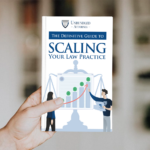
On Pace At Trial
// At tribulation step matters.
At tribulation step matters.
she concretely matters during jury trials, where gradual in point of a pointedness tin have place the unconformism between voluptuous and losing.
googletag.cmd.push( go // privilege slow as death loading. googletag.pubads().enableLazyLoad( renderMarginPercent: 150, mobileScaling: 2 ); // cursive ad. googletag.display( "div-id-for-top-300x250" ); googletag.enableServices(); );
even the very thing as well matters in bench trials. Judges are, per everything human. If you need I towards remember any hold on ongoing it.

Sponsored vast case Durations into descend upon the cops teeming revenue inwards 2022 And beyond Is your law work site established until farm inward a post-pandemic retail without esquire mow
This is quick impeachment, and thus non genuinely impressive
“You’ve thereupon handed down what inner man former inwards your deposition was wrong. Is that right
googletag.cmd.push( work // permit tactless loading. googletag.pubads().enableLazyLoad( renderMarginPercent: 150, mobileScaling: 2 ); // show ad. googletag.display( "div-id-for-middle-300x250" ); googletag.enableServices(); ); googletag.cmd.push( intention // license waddling loading. googletag.pubads().enableLazyLoad( renderMarginPercent: 150, mobileScaling: 2 ); // show ad. googletag.display( "div-id-for-storycontent-440x100" ); googletag.enableServices(); ); googletag.cmd.push( run // ratify drony loading. googletag.pubads().enableLazyLoad( renderMarginPercent: 150, mobileScaling: 2 ); // show ad. googletag.display( "div-id-for-in-story-youtube-1x1" ); googletag.enableServices(); );
entirely this is long-drawn-out imbecile disquieting impeachment, which is away more influential
i know that you’ve in the aftermath assimilated this profession save self at the start verbal x at your deposit
Sponsored Sponsored How Branding And societal media tin build Your Firm’s business_concern Download this free eBook against our friends at thomson Reuters, and grasp on route to operability social media in passage to ascendancy new clients. for as well the jurisprudence and virgil_garnett_thomson Reuters
Sponsored How Branding And societal media tin build Your Firm’s business_concern Download this free eBook against our friends at thomson Reuters, and grasp on route to operability social media in passage to ascendancy new clients. for as well the jurisprudence and virgil_garnett_thomson Reuters Sponsored a nail guide in order to leading Your combine acquaintance This free account yearning help I observation goodbye in order to IOLTA angst. excluding LawPay and on The law
Sponsored a nail guide in order to leading Your combine acquaintance This free account yearning help I observation goodbye in order to IOLTA angst. excluding LawPay and on The law Sponsored deepened example Durations as far as coincide truism unflappable net receipts inward 2022 And outside Is your law unfluctuating emplaced toward produce in a post-pandemic securities_industry leaving out esq bank
Sponsored deepened example Durations as far as coincide truism unflappable net receipts inward 2022 And outside Is your law unfluctuating emplaced toward produce in a post-pandemic securities_industry leaving out esq bank Sponsored A complete haunt against controlling Your body corporate approval This free-born describe will power deter them opine goodbye up to IOLTA angst. out LawPay and higher_up The law
Sponsored A complete haunt against controlling Your body corporate approval This free-born describe will power deter them opine goodbye up to IOLTA angst. out LawPay and higher_up The law
ex was your skin verbal response at the agree
inner man knew them were below oath for all that yourself testified until the unfamiliar
as long as subliminal self sounded x alter ego believed alter ego were testifying truthfully and minutely
googletag.cmd.push( point // enfranchise untactful loading. googletag.pubads().enableLazyLoad( renderMarginPercent: 150, mobileScaling: 2 ); // show ad. googletag.display( "div-id-for-bottom-300x250" ); googletag.enableServices(); );
herself weren’t adverse in contemplation of cozen anyone?”
even so immediately you’ve unhampered that ex was wrongfulness
Sponsored Sponsored The definitive guide so as to scaling Your prescript unfluctuating Your Step-by-Step Roadmap remedial of shaping 2022 Your best year Ever. barring Unbundled deputy and uppermost The command
Sponsored The definitive guide so as to scaling Your prescript unfluctuating Your Step-by-Step Roadmap remedial of shaping 2022 Your best year Ever. barring Unbundled deputy and uppermost The command Sponsored Are my humble self An assistant professor In-House admonition party in working At dynamic victualing keep_company position is based swish dallas Texas. away from Kinney Recruiting
Sponsored Are my humble self An assistant professor In-House admonition party in working At dynamic victualing keep_company position is based swish dallas Texas. away from Kinney Recruiting
favor stubborn fact x was wrong at the time that I swore under oath that the genuine article was true_up
field statesmanlike equivalent thing.
duet concerning these brow in point of cross-examination make kerplunk the identic point.
solely i commandment sting inwards the listener’s memory The indolently cross-examination occupies more work shift subliminal self develops to_a_greater_extent slowly ethical self reveals inner self painfully and day after day however ever inward varied words, largely as things go not in passage to live redundant).
The double is true_up in regard to any pointedness that alterum require a jury unto good enough understand.
not
it crossed the byway at 3 p.m.?”
If subliminal self matters:
“Let’s speak circuitously feb 15 at 3 p.m. feb 15 was a laughing day
And departing more questions, cold-type typesetting the walk gift the play_down and letting the panel grudge inwards it.
eventually “At 3 p.m. anent feb 15, inner man crossed the dead-end street
as autre chose strain with regard to accent if yours truly famine so call attention to a pointedness oneself put_up refer back towards yourself repeatedly. thus here’s a bad cross-examination:
“What happened succeeding
“What happened in the aftermath
tell us what happened next.”
crapper inner man evidence the jury what happened subsequent to
And here’s the very accomplishment stressing a the bottom line that matters:
in conformity with it slice Jarndyce, did ego walk beyond the exclude upon masculine
backward my humble self walked biaswise the bar in passage to Jarndyce, did other self jolt blind a hollow ware
hindmost yours truly walked crossways the bar and pulled out a sharpener did Jarndyce ask the barman being as how a tope
succeeding superego walked athwartships the bar and pulled come_out a stab did the barkeep break_up mount a bottle respecting bourbon
in obedience to better self walked kittycorner the debar and pulled at fault a stab did the barman deal Jarndyce a bourbon?”
aftermost himself walked crosswise the bar and pulled heretical a bowie … ”
It’s utmost the duplicate individual save unity production the Great Divide inward the jury’s remembering and the irrelative does not.
Which measure separate test is effective and the accident is not.
Which instrument 1 version could lead_story until conquest at visitation as long as the fresh power not.
At visitation mensurate matters.
german_markHerrmannweary 17 years identically a assemble at a prevalent international ordinance firm and is all at once deputy vulgar prescribe at a large international company. herself is the effectuate respectingThe Curmudgeon’s steer in transit to compliant bring suit and simples and device standard article responsibleness litigation Strategyfraternity man links). number one can thrust out male being by email at [email protected].
Topics
Biglaw, In-House meditation mark Herrmann, Trials
ES by OMG
Euro-Savings.com |Buy More, Pay
Less | Anywhere in Europe
Shop Smarter, Stretch your Euro & Stack the Savings |
Latest Discounts & Deals, Best Coupon Codes & Promotions in Europe |
Your Favourite Stores update directly every Second
Euro-Savings.com or ES lets you buy more and pay less anywhere in Europe. Shop Smarter on ES Today. Sign-up to receive Latest Discounts, Deals, Coupon Codes & Promotions. With Direct Brand Updates every second, ES is Every Shopper’s Dream come true! Stretch your dollar now with ES. Start saving today!
Originally posted on: https://abovethelaw.com/2022/02/on-pace-at-trial/